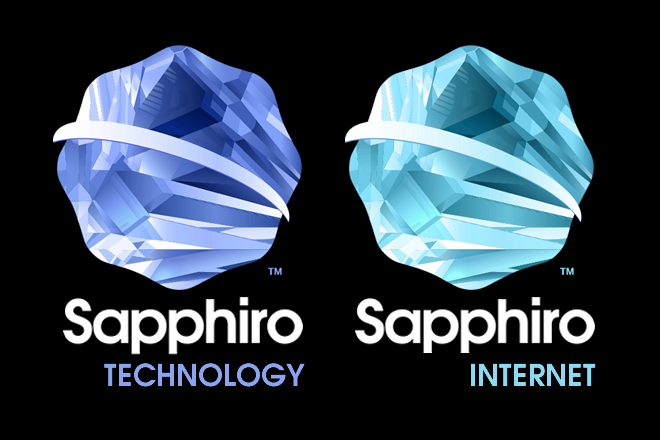Way of the Rich
How billion dollar companies became billion dollar companies
I spent a lot of my free time in the last 3 years studying the topic of success and successful people including billionaires via binge watching over hundreds of videos on them and reading over thousands of articles on successful habits, successful people and also on their current debates. For now the leading billionaires are more on the topics of Artificial Intelligence (specifically Artificial General Intelligence and Artificial Superintelligence), along with Universal Basic Income (UBI), space tourism, cryptocurrency and the likes of that.
There's also tons of information on companies and running companies that I didn't know 3 years ago, but each time I have a question in mind I would have went ahead to watch youtube videos on it or look up for it on Quora to get my answers etc. I also spent some time studying structures of corporates, governments and militaries. (And seeing similar patterns across these organisations)
Most people don't question so much, so they will just study hard, get their university degree, then come out to society to get a job, and throughout their life till retirement age to continueously switch between jobs. More adventurous individuals will start their own small business in between, but more of the traditional "level 1" straight forward way of running businesses.
(Restock items, marketing and selling to customers on repeat mode. No board of directors etc, everything on the operation level)
Startup up-starts, due to the current trend of startup entrepreneurs/tech seminars, may not fully understand the system but knows funding exists, so they will grab one or two available fundings or grants and then that's it. They will use that money to build their team, to hire a programmer to build their products in the mean time etc. (I heard of several people who do it this way fail)
Some company owners will also feel very ambitious and wants 100% ownership of their own company to avoid strangers having a share of their company. (I used to think this way)
Many people also do not really know how company shares work. If you have 100% shares and you want to raise/sell 10% of your company for 4 rounds of funding, you will only be left with 60% shares of the company, which means you can only have a limited number of funding rounds right? (Both right and wrong, you can actually raise new funding rounds unlimitedly)
Billionaires and millionaires seems to understand the system like a game. It's more to do with merger and acquisition and managing companies like a portfolio game. I think they see businesses as a two-part thing.
- One part at the lower layer is the usual business that we all know, about restocking inventories/gathering manpower and selling products and services to the customers. (Selling of products and services for money to sustain the company)
- On the higher level, the company itself is also a product that can be bought or sold via ownership shares.
We always hear tech news or entrepreneurship news that another X or Y company raised another "series A/B/C" funding round and suddenly became multimillion or billion dollar e.g. Normal people will think there is only so much shares that you can sell. If you own 100%, and you sell 25% to company A, another 25% to company B, now you're only left with 50% ownership, and if you sell another 45% you're left with 5%.
What most people do not know is that shares can be created by companies at any point of time, but do it wisely because it will affect your company's valuation. This kind of information is also not very readily available so most people do not understand. (Most people also do not know stock market and all the share prices when shown on TV screens etc, which I also haven't fully study that yet.)
When I learnt that shares can be created freely, I also explored bizzare ideas last year like having a share ownership system to create new shares for co-founders every single month according to their contribution until a startup company becomes stabilised, at which point the shares will be fixed etc. (But now I think of it, this was also a stupid idea)
Across Microsoft, Google, Facebook, Alibaba to Uber, the billionaires do it this way:
- Focus on having great products first
- Raise fundings to build their company
- Use funds to run company operations.
- They can raise funds indefinitely
Every once in awhile, they will try to sell between 2% to 8% shares of their company to bigger companies and wealthy individuals to tap into their network. They can do this indefinitely because new shares are created each time a new investor comes on board.
e.g. If right now you have 1 million shares, and a new company wants to buy 6% of your shares. You calcalulate your current 1 million shares as 94% of the new total number of shares. 1,000,000 / 0.94 = 1,063,829.78.
New total number of shares will be now 1,063,829.78, so 63,829 new shares will be created and sold to the new investor for $x which accounts for 6% new total number of shares of the company. Using this method, they can create new shares to sell to investors whenever there is a good deal for them or when they need fundings.
Also, the more often your commpany shares is acquired, goes to show that your company shares are very liquidable and hence more attractive to investors. (Assuming every investor wants to sell their shares to someone else at some point of time to flip a profit)
In early stage, they focus on growing revenues aggressively and not focussing on profits. Profit is important, but profit is counted after deducting operation costs and revenues. What's important is still the revenue. The rest are mostly a numbers game. Uber is one good example. The company makes billions of revenue each year but is still making loss each year. Most of their operation costs goes to paying their drivers. The good thing is that once they developed the technology of self-driving cars, all the money spent on paying Uber drivers can be voided while revenue remains the same. Profits will naturally increase by a lot.
Also, with the world's top 1% owning roughly 50% of all the money in the world, there is a lot of money out there as long as they play their funding rounds well. As long as the company still remains an attractive investment option to the wealthy individuals and giant companies, there will always be a next funding round so the company remains alive. Worse comes to worse, they will take in new investment that will lower their company valuation. (Good example here is Yahoo with their valuation dropped from 120 billion USD to currently around 40 billion. But still a multi-billion dollar company)
In the worst positive scenario, the company that no longer can run on its own gets wholely acquired by a larger company. (Company founders that wants quick exit to cash out ASAP actually prefer this way, like Instagram and Whatsapp etc while "legacy entrepreneurs" prefer to be on their own and have control over the company)
In the absolute worst case scenario, no one wants to invest in the company again and the company goes bankrupt. Hence regular fund raising can be an important factor here to constantly verify the company's investment attractiveness in the market.
A point to take note though, is that company bankruptcy does not mean personal bankruptcy. Companies are treated as their own independent entities and as such do not affect the company directors individually unless they are guarantors for loan.
(Only for companies. Sole proprietorships and partnerships are tied to the individual business owners)
They may give dividends regularly to keep investors satisfied and hence more likely to recommend new investors onboard or to re-invest.
(Also a way for founders who are "Founder/CEOs" themselves to get income if they decided to pay themselves $1 CEO salaries to cut costs and also to make bizzare headline news for marketing purposes, but actually they still get their income via dividends which the founders themselves should own a huge percentage of company
Successful people like what they do and hence doing what they like. End result is a virtuous cycle. After knowing how all these systems work, they also often treat entrepreneurship like a challenging game. They try their best, but end of the day if it really really doesn't work, the company as its own entity can just go bankrupt without affecting their personal wealth. The entrepreneur can start all over again with another idea with their own money or with seed funds from potential investors again. (Investor-relations in entrepreneurship is very important in this case)
- Bonus point: The internet has made it possible to outsource work to people without even you seeing them before. But the best is to still work with people whom you can relate and like as people to make everything more enjoyable. Working remotely can be good for productivity, but occasional face time is still very important. Same goes for meeting up with your outsourcee or overseas business partner once in awhile
All these is roughly what I know. Professional companies also structure their company properly. With C-suites leading the company operations while having a board of directors at the top layer to bring in this kind of investment money.
For people who may not know, they might think CEOs are actually the boss of the company but actually CEO, COO e.g. all these C-suites are highly paid salaried employees hired to be on the management team under the board of directors. Founders are founders, but a lot of times founders themselves prefer to be their own CEO and sometimes this is why they pay themselves $1 salaries, because either way when they disperse company dividends, they still earn a lot. Other founders like Richard Branson and LinkedIn's Reid Hoffman prefer to hire their own CEOs so that they can have more free personal time.
I'll write about why people even want to be angel investors or early investors for these startups in the first place for another day.
1,208 unique views





